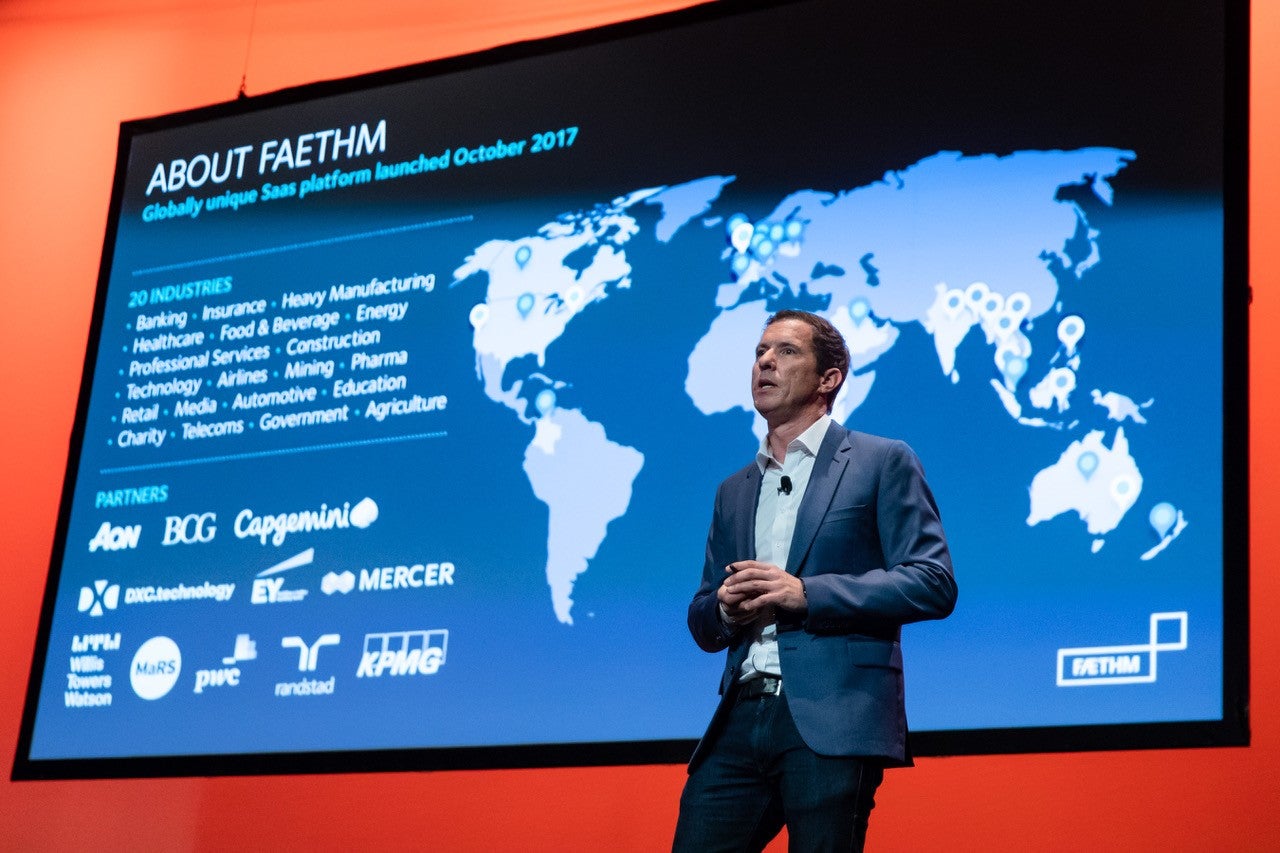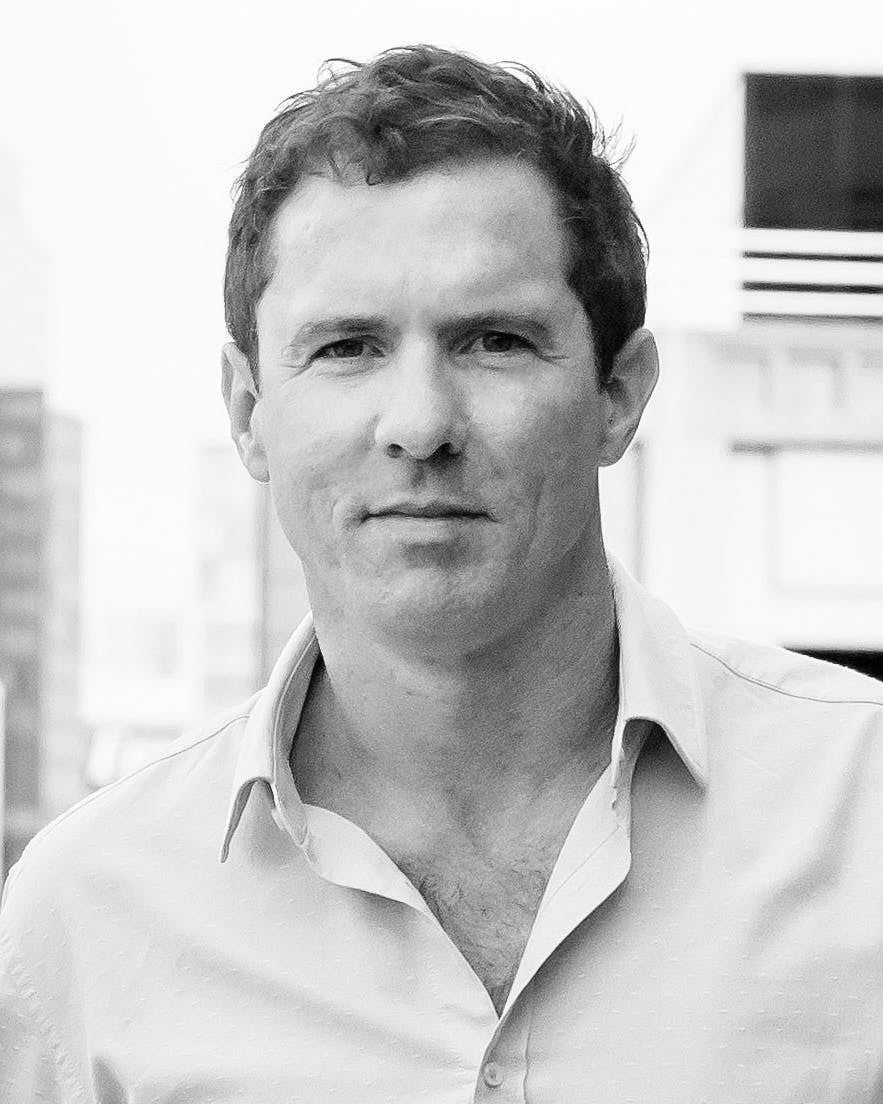Faethm are thinking about the human aspect of a robot future
The future may be robots and AI, but how many have thought about what happens to humans in that world? Martin Friel spoke to the start-up doing exactly that

There is an assumption that the future of work need not concern the governments, businesses and workers of today. Which is probably quite comforting because it seems that this workplace of the future will be dominated by robots, with humans playing, at best, a peripheral role.
Every business consultancy worth its salt has sought to predict what our employment will look like; what roles will disappear, and what technology will make them vanish.
But few have much idea of what will happen to the people currently doing those jobs, beyond vague advice to retrain. The most extreme vision of the future is one where there isn’t actually any work to be done by humans, who will survive instead on a universal basic income.
Which is a pretty depressing, one-dimensional view of our future, where our only role in society is to take money and use it to consume stuff.
But a more positive view of the future of work is offered by Michael Priddis, CEO of Faethm AI (pronounced ‘fathom’), a firm that seeks to predict the impact of technology on jobs and identify the roles whose incumbents can be redeployed or retrained rather than made redundant.
Firstly, Priddis says, we need to stop talking about the future of work: “It’s a terrible term as it asks you to think about the future rather than what you need to do now.
“Governments only think in 12 to 24-month periods and it’s the same with CEOs. Talking about the future of work allows them to think it’s not their problem.”
Secondly, he is keen to challenge the belief that tech will replace most jobs. He concedes it will have a marked impact, but believes it will be more about augmenting jobs, an augmentation that will not only remove the repetitive tasks but will also create new ones.
Jobs have changed throughout human history – we are just doing it much faster now, and if we don’t start acting now, we are going to see a lot of displaced people
And it is that transition that he believes Faethm AI can help facilitate as smoothly as possible for organisations.
“Our mission is to persuade companies to not make these people redundant, because elsewhere in the business, new jobs, roles and tasks are being created all the time,” he says, pointing to automation in accountancy as an example.
“There is a new category of work that is in huge demand – cyber security. When you break it down to the core skills, it turns out that accountancy and cyber security are pretty similar jobs – working in a corporate environment, with a computer, looking for patterns in numbers to deliver insights.”
He explains that the remaining gap is the cyber security knowledge, an eminently trainable skill.
“It doesn’t make any sense to pay out redundancy for those accountants, then recruit cyber experts from a dwindling supply. When you have a bit of formal knowledge of what is coming, you can prepare and retrain your people,” he says.
So how does Faethm AI actually do it? As you’d expect, it’s pretty complicated; but for the layperson, Priddis boils it down to the following elements.
“The first question we are answering is what the impact of tech is going to be on jobs over time,” he says.
“We researched and developed a tech taxonomy that described every emerging piece of tech, defined the attributes of each, and then produced a global model that described how different industries in different countries can adopt that tech.”
The next stage was to repeat that process to produce a universal model of work.
“We have described 5,600 jobs and used AI to distil the differing levels of seniority so we can describe each job at a molecular level,” he says.

“We have a universal model – every job, every industry, in every country is described at a forensic level.”
It is then that the final level of AI is applied, to highlight what happens when the tech is applied in the context of available and required skills. That allows organisations to identify skill gaps for the new roles created, and see what existing roles in the organisation have the skills to fill that gap, or, with retraining, have the potential to do so.
Priddis’s mission is to help firms kick the redundancy habit. Not just because having mass redundancies every five years or so is costly and inefficient, but because that approach to managing change pays little, if any, regard to the human impact.
“I grew up in a very socially orientated household,” he says.
“My father was a bishop in the Church of England, and we would talk about the role of government in society and the economy, and I saw that these different systems are part of one overall thing.”
And it was in previous consultancy roles, where he was helping organisations automate and digitise processes, that Priddis realised they were blind to the human aspect of that change.
“We were not being engaged to automate jobs but to build a product, and while these organisations were intending to be disruptive in their markets, I could see that internal disruption was coming, and that meant people’s jobs,” he says.
He believes that if more organisations take a broader view of the impact of automation, then there will be broader benefits for society at large.
“Certain industries skew in different ways, and that has an impact on the way people are affected,” he says.
“Financial services skews towards automation of roles performed by women, as they are overrepresented in support roles, which are easier to automate.
“And in retail, it is the young and the old – kids working Saturdays and older people supplementing their pension – who will be impacted most.
Priddis has plans to help businesses of all shapes and sizes adopt his forensic and more humane approach to the digital transformation of business
“If you apply both of those examples to regional towns and cities, there is another category – the regional density of an occupation that is affected by automation. That starts to create social issues quite quickly.”
What Priddis is advocating is an acceptance of the inevitability of tech’s impact on the way we work, the scale of which he believes could match that seen when the UK economy made the shift from an industrial to a service economy in the 80s and 90s.
But accepting that inevitability doesn’t mean accepting the human cost witnessed four decades ago. There is the ability – and, perhaps, the responsibility – to use the same tech that will bring the disruption to ensure that the social impact of the economic change is managed in a much more humane manner.
“Jobs have changed throughout human history – we are just doing it much faster now, and if we don’t start acting now, we are going to see a lot of displaced people.”
It seems that some have seen the light, with global organisations such as Zurich, KPMG, Mastercard and Microsoft already on Faethm’s books. Priddis has plans to help businesses of all shapes and sizes adopt his forensic and more humane approach to the digital transformation of business.
But while he is satisfied that he is already making a difference, he is keen to go further: “I could stop today and know that I have made a difference, but we have line of sight towards making much more of an impact than we already have.”
Join our commenting forum
Join thought-provoking conversations, follow other Independent readers and see their replies
0Comments